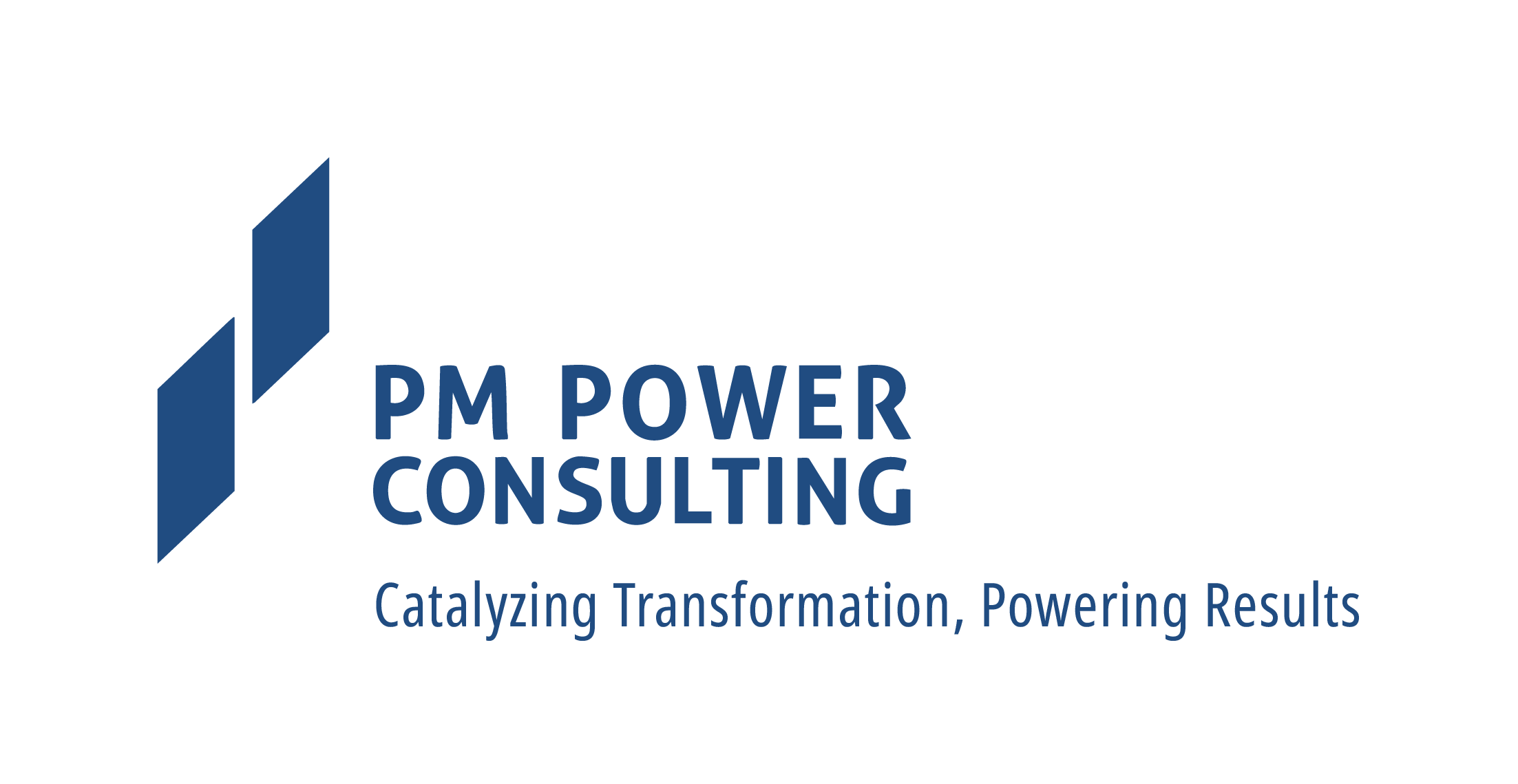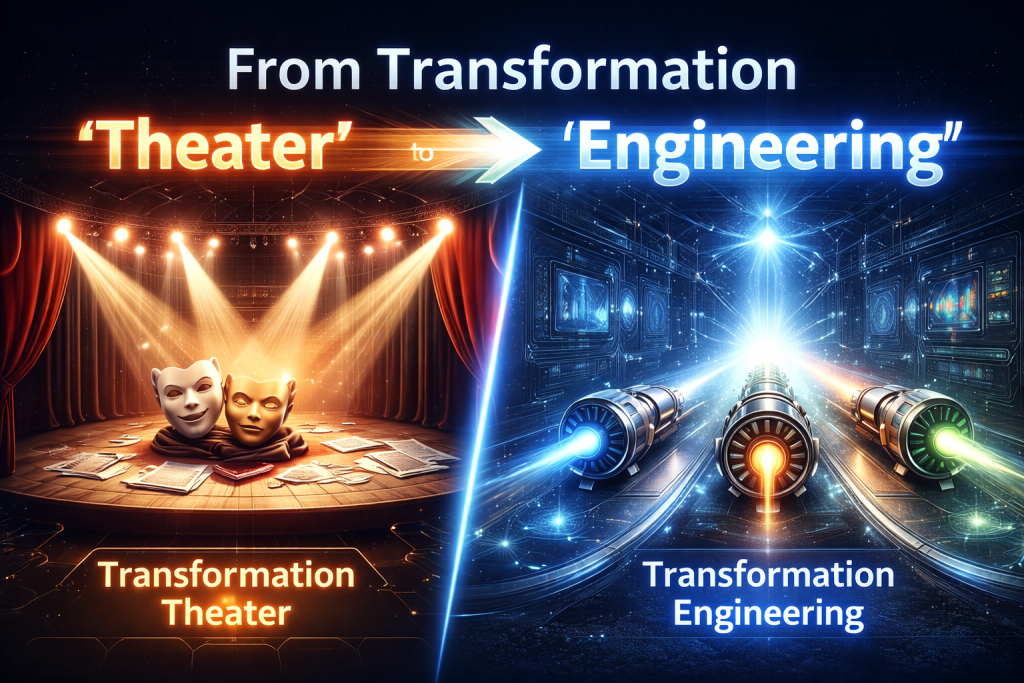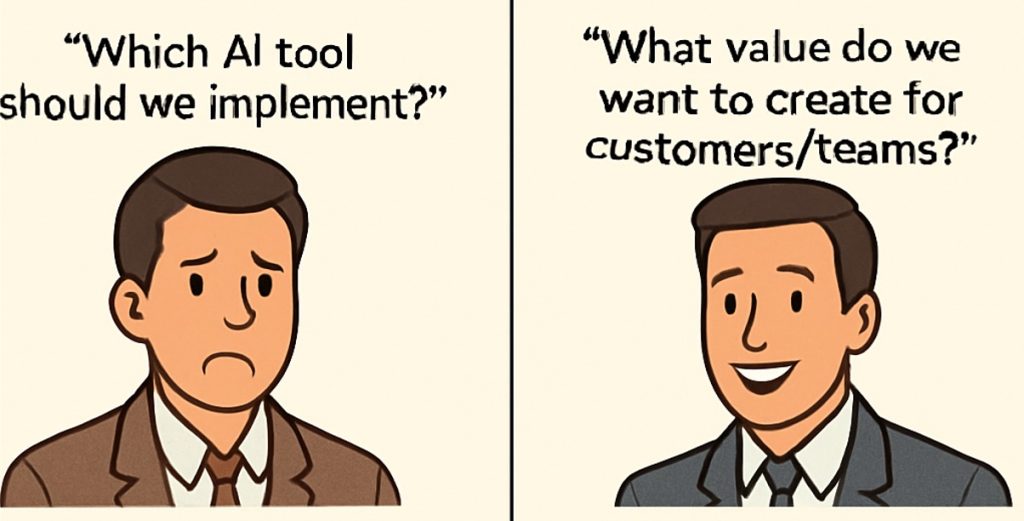Today, we have seen agile taking deep roots in the organization. While it began its humble journey when a group of techies were dis-satisfied with the process, it has now moved beyond that into every nook and corner of many an organization.
So, business agility is the new mantra. Author and thought leader Steve Denning would go on to describe agile as a Copernican revolution in management. I fundamentally subscribe to that school of thought.
The last few centuries were dominated by the manufacturing industry. It revolutionized the way we live, the way we work. It drastically changed the way we could provide consistent quality, improve safety and add value to the lives of the people.
Now, we are in an era where software is starting to dominate the hardware (of any kind, including your cars and homes). This huge shift where the invisible and intangible makes the difference calls for a different way of thinking and mind-set. That’s where business agility fits in very nicely.
Business agility and capitalism
Today, business agility is defined by the following characteristics:
- Bringing innovation in increments and faster to the market – sometimes in days and weeks
- Understanding the current needs of the customer – to the extent of customer obsession
- Caring for the employees.
Truly all of this is laudable. The management of the day (and in turn the share-holders) are all supportive – as they see the valuation of these companies soar rapidly. In many a case it’s almost the winner takes it all.
All of this have effectively supported our current model of capitalism.
Now, there are quite a few CEOs and chairmen of leading companies who believe that we need to re-look beyond the current model of capitalism. To name a few – Paul Polman former CEO Unilever, Marc Benioff co-CEO and chairman of Salesforce.
Agility beyond capitalism
So how does business agility have to change in a world that wants to see the current way of capitalism change. Can business agility become the true Copernican revolution in the way the businesses of the future function. If yes, what does it mean?
I am going to dwell on the three important characteristics that I have outlined earlier in the rest of this post.
Faster innovation
Innovation – is all about exploiting the white space that others have still not got into. Faster innovation is about getting it in the hands of the customer before your competitor can do it. That’s the need of capitalism and agile fits into it well. So, what’s the challenge?
Smart phones have truly revolutionized our lives. We now create new smart phone models at least once a year, and most people change it every two or three years – because of the faster innovation and the consequent obsolescence of the current phone. You can afford it, why not do it? Well has this approach factored in the long-term environmental costs. Are we leaving our future generations poorer with today’s affordable capitalism and consumerism?
So, can business agility look at innovation with the long-term cost to society?
Customer obsession
After all any company exists only because it has customers. So being customer obsessed, is a great characteristic of an organization. I would humbly admit so. Is there any challenge with this, then?
Let’s look at social media. It has remarkably changed the way we share and know about people and events across the globe in real-time. Every day, every week – every organization is working on one important thing – In today’s digital world how do I get my customer hooked on to my app? If every interaction makes the customer feel closer to my app, that’s true customer obsession. Is there any issue with it, then?
What’s the impact of this – Are children getting hooked on to media and missing out their child-hood? Are we no longer able to distinguish between facts, opinion, judgement, and fake stories? How has it impacted the collective psyche of the society?
Are we even providing any of the services free, as we claim? Would capitalism have supported it, if there’s no money to be made. Or are we surreptitiously gathering information about the customers (I would include even fine print in this category, or near monopolies openly stating it) and can we create a night-mare for the society eventually?
Where does customer obsession fit with regard to social accountability (to the society at large)?
Empowered team
Who would not like to work in an organization where you have the ability to do your work the way you deem it fit best? When you are set the goal, provided the rewards and allowed to deliver on it and reap the benefit – it’s truly amazing. I would like to be in such a working environment. Then where’s the challenge with this?
I want to look at two stories here.
In a cab-sharing service company you figure out that a well-off neighborhood is adjacent to a poor one. You now figure out that on a Saturday evening you can charge a premium (surge pricing) based on the pin-drop of the location. Great idea – that an empowered team has figured out. Is there anything wrong with this? After all no one is forcing you to take the cab, if you think it’s highly priced.
Cabs, as a service, were meant to be provided to all in the society in a fair manner. Are we now exploiting the regulatory hole that exists, in the name of an empowered team?
The second story
Now onto my second story. You hire young graduates, recognize them well for the work done. Ask them to stay aligned to your organization needs. They do it with an implicit trust and seeing the way the predecessors have grown up. The management has an inkling that sooner than later this party will end. The nature of the work you have specialized will become obsolete. So, what happens to the employee at that stage? We cared for you when you were needed and now, we would like to bid good-bye. The employee felt cared as he/she climbed new heights. On the good-bye day you notice you climbed a steep-cliff and now you can only see a huge fall with one more step forward.
Is it sufficient to care for employees (when they are useful as employees)? Or do we look at them as people who have families and lives beyond an organization’s need. What type of a care should we provide?
In conclusion
We need truly holistic business agility, in today’s world. It has to go beyond the needs of current day capitalism (I am not proposing communism).
There are a few organizations I have noticed that are taking some steps in this direction. They have created learning day for employees to be ready not just for now but to be able to handle the future. There are companies which are asking conscious questions about how we are utilizing the customer information. How transparent are we? What’s the price the customer is implicitly paying? Some organizations are checking to see if they are exploiting the regulatory framework or playing by the spirit of it…
We now need “holistic business agility” where:
- We innovate thoughtfully
- We obsess with the well-being of the society
- We care for employees, as people who have a life beyond.
It’s then that I believe we have truly got business agility. Would it happen in the next 10 years?





